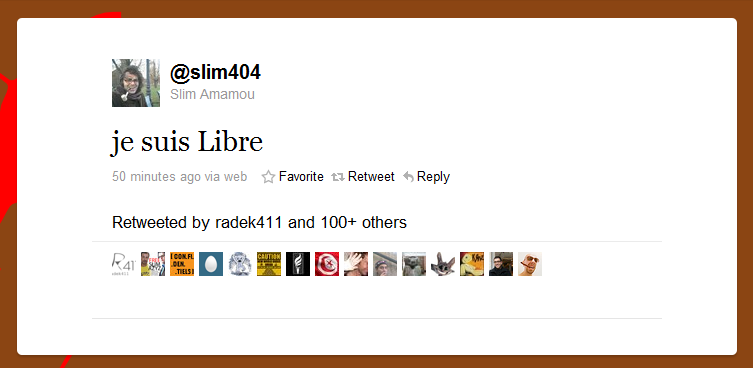Media missing in action for Tunisian protests, social media takes over. As protests over brutality, repression and economic neglect intensified in Tunisia over the past week, social media users kicked into gear. Traditional media neglected most of the news, including the killing of about 50 civilians by government forces.

Social media users, both inside Tunisia and outside, reported news of protests, riots, arrests, government actions and deaths via Twitter and YouTube. The hastag #sidibouzid was omnipresent on the social web.
This hashtag was the town where the protests started, in the wake of a suicide by a despondent young man named Mohamed Bouazizi. There was something iconic about it, nearly religious, a rallying cry not just for justice to be done in Tunisia, but as a way of its users assuring themselves that none of them were altogether alone.

At about 3:00 p.m. (PST), news arrived – via Twitter, of course – that one of the detainees, and a writer for ReadWriteWeb France, Slim Amamou, had been released, along with another detainee, Azyz Ammami.
A number of concessions are said to have come from these electronically-amplified protests. Few to none can be considered to be confirmed.
- The firing of the Tunisian interior minister, Minister Rafik Belhaj Kacem, for allowing the police to use “excessive force.” (Cute phrase for the deaths of dozens of civilians.)
- The end of web censorship.
- The promise by prime minster Mohamed Ghannouchi not to run for election again.
- The promise the police would not allowed to use live ammunition except in self-defense. (At the time of this writing, reports of live firing on civilians were still coming in.)
Li Hong has become second online writer to die in detention. Li Hong’s death in Ningbo, China, was the second, after Omid Reza Mir Sayafi‘s death in Iran on March 18, 2009, involving a blogger in prison. Like Omid, Hong’s death was a direct result of untreated medical conditions. Hong had spent three years in prison where treatment for a degenerative disease, amyotrophic lateral sclerosis, was withheld.

Like Omid, Hong was tortured to death over a period of years.
Shame, China, SHAME!
U.S. government to create “verified ID” for the internet. A largely undefined program to create an “identity ecosystem” for verified online identities has been turned over to the Commerce Department. While some find it vaguely unsettling, others believe it to be a safe and useful idea.
Court subpoenas Twitter for user info in Wikileaks case. The document demanded data for half a dozen people associated with Wikileaks and its release of war and diplomatic documents. Twitter pushed back at the subpoena, requesting, and receiving, permission to inform the targets of the inquiry what had been asked of them.

Russia moves toward national internet. Former President and current Prime Minister Vladimir Putin recently signed an executive order requiring all Russian governmental organizations and departments to go open source by 2015. Proprietary software – from Microsoft, Google and so on – puts Russia in a state of dependence on a sector that is overwhelmingly American. Russia joins Iran, China and Turkey as nations that have been exploring the possibility of walling off their national internet from the world.





















